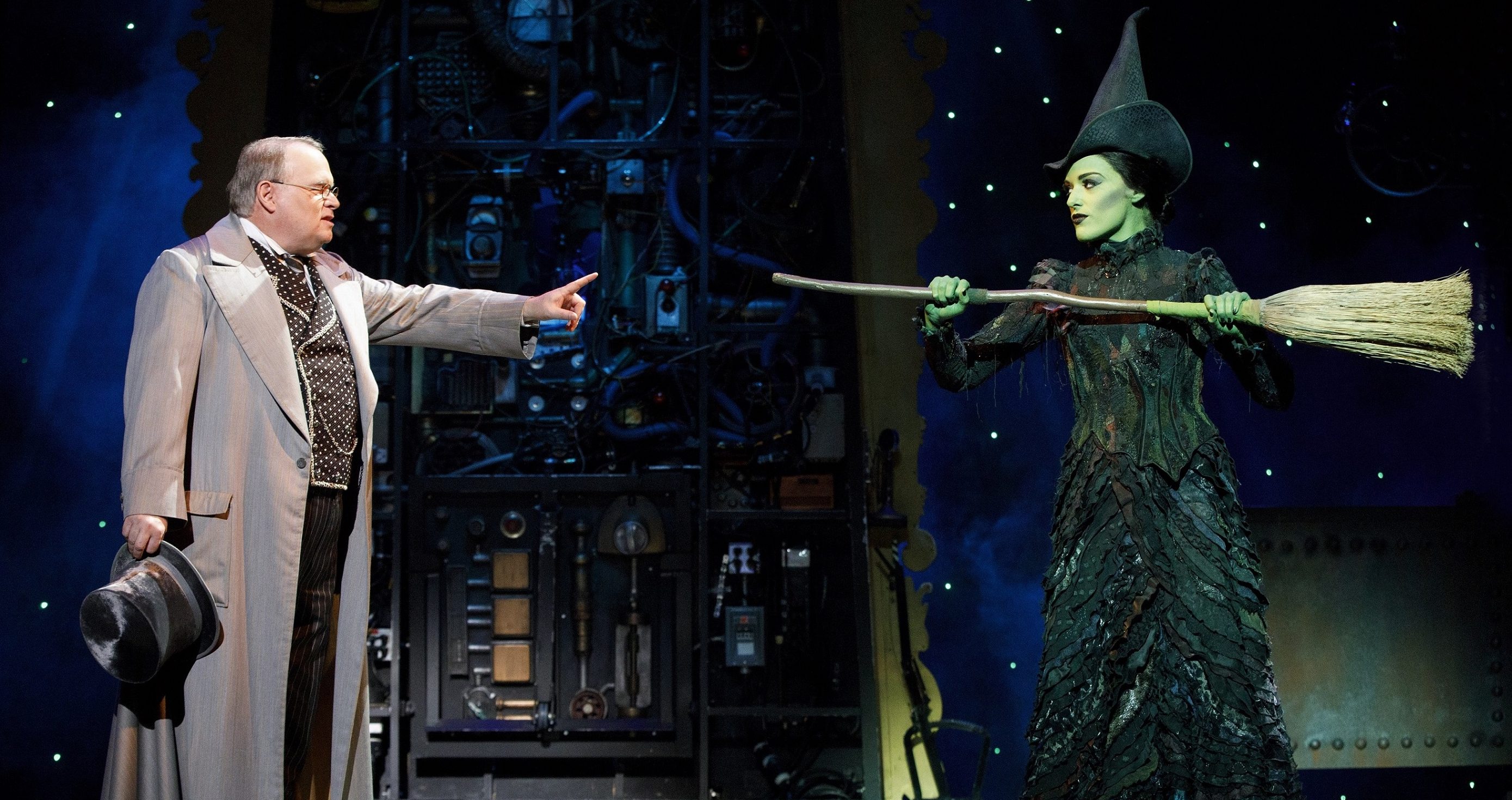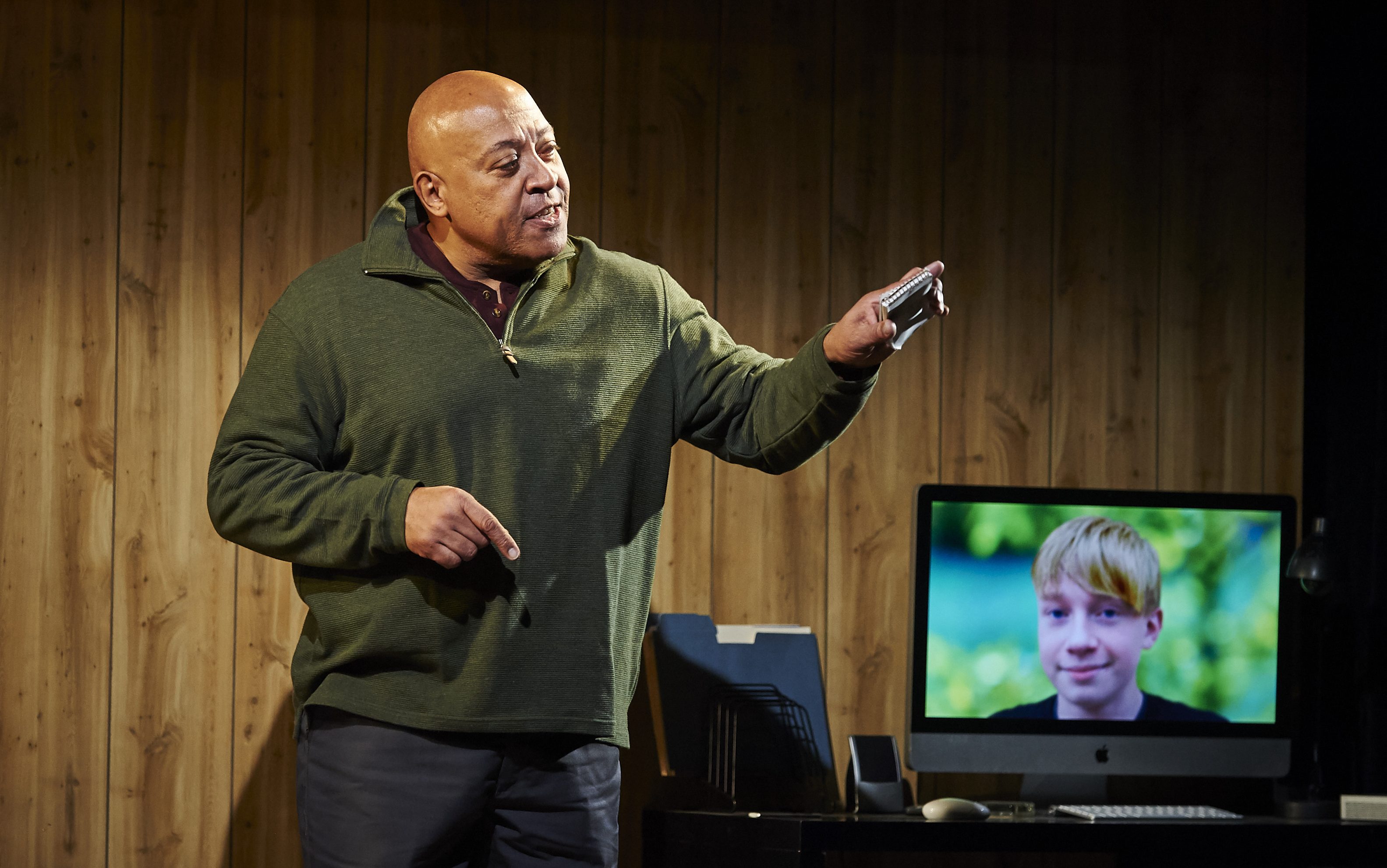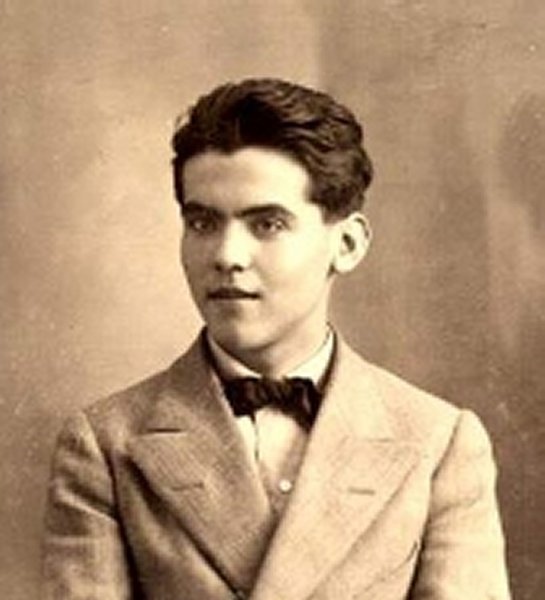February Theater Guide: Full Slate, Cue the Music
- Like
- Digg
- Del
- Tumblr
- VKontakte
- Buffer
- Love This
- Odnoklassniki
- Meneame
- Blogger
- Amazon
- Yahoo Mail
- Gmail
- AOL
- Newsvine
- HackerNews
- Evernote
- MySpace
- Mail.ru
- Viadeo
- Line
- Comments
- Yummly
- SMS
- Viber
- Telegram
- Subscribe
- Skype
- Facebook Messenger
- Kakao
- LiveJournal
- Yammer
- Edgar
- Fintel
- Mix
- Instapaper
- Copy Link

She’s here to sweep away our winter blues, and she means business. Mary Kate Morrissey plays the not-so-wicked witch Elphaba in the touring production of ‘Wicked,’ one of many musicals on Pittsburgh stages this month.
February is a big month in live theater, with most companies back on stage after the holiday break and January reboot. This year it’s also an unusually musical month, as the Pittsburgh schedule includes a number of Broadway-style musicals plus some intriguing shows set to music.
Pittsburgh Opera premieres the modern chamber opera Ashes & Snow, billed as “‘Breaking Bad’ meets Samuel Beckett.” The dance company DIAVOLO visits town to perform a couple of pieces themed around human responses to architecture. (Office workers may enjoy “Cubicle.”) For all whose tastes run classical, Pittsburgh Ballet Theatre is dancing Swan Lake, while Bollywood fans get the touring musical revue Bollywood Boulevard.
Broadway-style musicals include—take a deep breath—Wicked, The Drowsy Chaperone, The Bodyguard, Little Shop of Horrors, The Last Five Years, A Funny Thing Happened on the Way to the Forum, We Will Rock You, Evil Dead: The Musical, and Madagascar—A Musical Adventure.
Westeros-style musicals include Musical Thrones: A Parody of Ice and Fire.
Interesting non-musical plays are on the schedule too. Rules of Seconds is a new satire with a cast featuring two actors from the Netflix series “Mindhunter.” Holmes and Watson, a new addition to the Sherlock saga, is a mystery set in an 1890s insane asylum. Two intense dramas come to the stage: In the Heat of the Night, adapted from the novel that once spawned the Oscar-winning movie with Sidney Poitier, and The House of Bernarda Alba, the all-female Spanish classic about a houseful of warring women. Contenders for Weirdest Play of the Month are A Devil Inside and Smitten.
Shows are previewed in order of run dates, with “other notable productions” described briefly at the end.
Continuing from January in the Entertainment Central Spotlight:
THE LAST FIVE YEARS (musical) by Jason Robert Brown. Jan. 26 – Feb. 3, Split Stage Productions.
Split Stage Productions has brought adventurous musicals to Westmoreland County, with recent numbers such as Spring Awakening and Side Show. Now they are presenting a musical that bends time’s arrow and once triggered a lawsuit. The Last Five Years tells the story of a failed marriage from two viewpoints: the husband relates his side in chronological order while the wife presents hers in reverse, from breakup back to first meeting. Writer/composer Jason Robert Brown based the story on his own failed marriage—perhaps too closely, for after the show premiered in 2001, Brown did some rewriting when faced with legal action from his ex. Aside from these peculiarities, music fans enjoy The Last Five Years for its intricate, unusual songs and melodies. Split Stage is performing The Last Five Years at The Theatre Factory. 235 Cavitt Ave., Trafford.
WICKED (musical) by Stephen Schwartz and Winnie Holzman, from Gregory Maguire’s novel. Through Feb. 11, touring company at Benedum Center.
https://www.youtube.com/watch?v=3g4ekwTd6Ig
Alternate history is a niche genre, rarely producing a household-name hit—but that’s not the case with alternate Oz. Everybody knows about Wicked, the novel-turned-musical that tells the tale of the Wicked Witch of the West from the Witch’s perspective. The touring production is booked into Benedum Center for a stupendous run of 23 performances, and most shows are nearly sold out. Why is Wicked so popular? In part, because what it’s an alternate of is so popular. The 1939 film The Wizard of Oz might be the best-known movie ever, and Margaret Hamilton’s portrayal of the Wicked Witch as a cackling, bad-to-the-bone hag has been seared into the mind’s eyeballs of millions. Wicked turns that image upside down. The musical gives us a misunderstood gal who’s actually a good-hearted activist, blacklisted for her efforts to oppose the Wizard’s mean regime. Besides, she’s pretty. And she can sing! Wicked has music and lyrics by Carnegie Mellon alumnus Stephen Schwartz; book by Winnie Holzman. 237 7th St., Cultural District.
RULES OF SECONDS by John Pollono. Jan. 26 – Feb. 17, barebones productions.
Braddock-based barebones productions returns to action with a new play by L.A.-based John Pollono, who wrote the much-lauded Small Engine Repair presented at barebones a couple of years ago. The new one is Rules of Seconds. It’s a comic melodrama set in the 1850s, when men were men and defended their honor by dueling with pistols. A very fidgety (and hopelessly un-combative) young fellow is challenged when he accidentally insults a dastardly older man. It looks like certain death, but help is on the way—along with absurd plot twists that riff on the actual absurdities of macho culture. Rules of Seconds premiered last year in Los Angeles, where it drew mucho laughs and tickled the critics: the Los Angeles Times called it a “satire … disguised as farce masquerading as a stage potboiler.” The barebones cast includes two actors from Netflix’s “Mindhunter”: Cotter Smith and Jack Erdie, who play FBI Unit Chief Shepard and mass killer Richard Speck in that true-crime series. Rules of Seconds is at 1211 Braddock Ave., Braddock.
THE ABSOLUTE BRIGHTNESS OF LEONARD PELKEY by James Lecesne. Through Feb. 25, City Theatre.

Keith Randolph Smith is a detective out to solve a murder case—and learning much more— in ‘The Absolute Brightness of Leonard Pelkey.’
One-person plays are, by their nature, unusual. Typically the lone actor plays multiple roles while also narrating. The one-person play at City Theatre is doubly unusual because of its subject matter and treatment thereof. The Absolute Brightness of Leonard Pelkey concerns the murder of a gay teenager. Young Leonard himself (a fictional character) never appears; he’s already dead. We learn about him from a detective who investigated the crime. Various people who knew Leonard chime in with their stories. And while his brutal end is tragic, the play is the opposite of a tragedy. It’s said to come across as a portrait of a witty, high-spirited youth who lived briefly, but brilliantly. Actor/writer James Lecesne adapted the play from a novel he’d written previously, then performed it in its 2015 New York premiere. The Absolute Brightness of Leonard Pelkey was an off-Broadway sensation, winning rave reviews. Actor Keith Randolph Smith plays all the parts at City Theatre. 1300 Bingham St., South Side.
A FUNNY THING HAPPENED ON THE WAY TO THE FORUM (musical) by Stephen Sondheim, Burt Shevelove, and Larry Gelbart. Jan. 25 – Feb. 25, Pittsburgh Public Theater.
Pittsburgh Public Theater presents a gripping saga of ancient Rome—one that has parallels to our own times—and it is not Shakespeare’s Julius Caesar. The Romans, like us, loved comedies. Their comedies included music. Therefore, to honor the run-up to the Ides of March, The Public is staging A Funny Thing Happened on the Way to the Forum. This winner of the 1963 Tony Award for Best Musical was inspired by the comedies of Titus Maccius Plautus, a popular playwright in Rome around 200 BCE. His formula for making ‘em laugh was “raunchy + witty” and that spirit is channeled in the musical, a high-energy sex-and-confusion farce. One of Plautus’s classic characters, the cunning (and punningly named) Pseudolus, even turns up as the main character in A Funny Thing. Book by Burt Shevelove and Larry Gelbart; music and lyrics by a then-young Stephen Sondheim. O’Reilly Theater, 621 Penn Ave., Cultural District.
In the Entertainment Central Spotlight for February:
WE WILL ROCK YOU (musical) by Ben Elton, with songs from Queen. Feb. 1-11, Pittsburgh Musical Theater.

Freddie Mercury (shown here in 1977) is gone, but his music lives on in ‘We Will Rock You’ at PMT.
Was he the GOAT? Hard to say, as rock music has had many great lead vocalists and songwriters. But Freddie Mercury of Queen excelled at both, mixing sheer energy with rare artistry across a range of styles. That is why Queen’s music keeps winning new fans long after Mercury’s untimely death in 1991. And it’s why We Will Rock You—the stage musical based on Queen’s music—keeps rocking live audiences around the world. We Will Rock You premiered in London in 2002. Despite scornful reviews from critics who deemed the story line (by writer Ben Elton) too silly for refined tastes, the show played to packed houses for 12 years while spinning off many productions elsewhere. The story is set in a dystopian future where a Killer Queen imposes drab conformity on the masses. Her rule is disrupted, and joy restored, by a crew of ragged Bohemians led by Galileo and Scaramouche: Can you say “Bohemian Rhapsody”? Other musical numbers, all from Queen, include hard rockers like “Fat Bottomed Girls” and Mercury’s plaintive swan song, “These Are the Days of Our Lives.” Pittsburgh Musical Theater presents We Will Rock You in the Gargaro Theater, 327 S. Main St., West End.
IN THE HEAT OF THE NIGHT by Matt Pelfrey, from John Ball’s novel. Feb. 2 – March 11. Pittsburgh Playwrights Theatre Company.
Several top actors have excelled in adaptations of John Ball’s 1965 novel, In the Heat of the Night. The 1967 movie starred Sidney Poitier as Virgil Tibbs, an African American police detective from Philadelphia involved in a murder investigation in a small backwoods town in Mississippi. Rod Steiger played the town’s racist police chief, William Gillespie. Tibbs is initially a suspect in the murder of a wealthy industrialist in the town. After his story checks out that he is indeed a police detective, Tibbs assists the police chief in solving the case. Steiger won the Academy Award for Best Actor, and the film won Best Picture. The NBC and then CBS TV series of the same name provided a solid role for Carroll O’Connor in the role of Chief Gillespie from 1988 – 1992 opposite Howard Rollins as Detective Tibbs. Now Pittsburgh Playwrights Theater Company is staging a theatrical adaptation of Ball’s novel by Matt Pelfrey. Directing for PPTCO is Monteze Freeland. Pittsburgh Playwrights Theatre, 937 Liberty Avenue, 3rd floor, Cultural District.
A DEVIL INSIDE by David Lindsay-Abaire. Feb. 2-18, THE REP at Pittsburgh Playhouse.
It’s hard to imagine that a Pulitzer Prize-winning playwright ever wrote something this bizarre, but you can see for yourself when THE REP performs David Lindsay-Abaire’s A Devil Inside. Lindsay-Abaire won the 2007 Pulitzer for Rabbit Hole, a gripping psychodrama. But he also writes dark comedies about people coming unhinged in weird ways, and A Devil Inside is perhaps the wildest. It has been described as Dostoevsky’s Crime and Punishment meets “Arrested Development.” A young New York City man is told that he must avenge the death of his father, who was stabbed and had his feet chopped off while hiking in the hills to lose weight. The young man is in love with a college girl, who has a crush on her Russian Lit professor, who is obsessed with the desire to murder an appliance repairman, whose girlfriend is … wait. Do people still have appliances repaired? THE REP is Point Park University’s professional company. They’re doing A Devil Inside at Pittsburgh Playhouse, 222 Craft Ave., Oakland.
MUSICAL THRONES: A PARODY OF ICE AND FIRE by Jon and Alan Kaplan. Feb. 8 only, touring company at the Byham Theater.
Every step gets farther from reality. First, novelist George R. R. Martin invents an imaginary world for his fantasy series A Song of Ice and Fire. Then come the fanfics, and the HBO adaptation “Game of Thrones.” That generates more fanfics, plus countless cosplayers and game players … and somewhere in the process of re-re-reimagining, the Point of Parody is reached. Enter Musical Thrones: A Parody of Ice and Fire. This live show is by no means the only such parody, but it’s reputed to be good and was written by an experienced duo, brothers Jon and Alan Kaplan. They made their initial mark in show biz with Silence! The Musical, a 2002 parody of The Silence of the Lambs. Other Kaplan send-ups followed, until Westeros and Essos loomed inevitably in the crosshairs of destiny. Musical Thrones: A Parody of Ice and Fire has a cast of several and visits Pittsburgh as part of the Cohen & Grigsby Trust Presents Series. 7:30 p.m. Byham Theater, 101 6th St., Cultural District.
LITTLE SHOP OF HORRORS (musical) by Alan Menken and Howard Ashmann. Feb. 8-18, Pitt Department of Theatre Arts.
Little Shop of Horrors is the only rock musical about a man-eating plant from outer space. The plant, named Audrey II, resembles a large Venus flytrap and lives in a florist’s shop where it devours, among other humans, a sadistic dentist. Little Shop is also one of the few musicals adapted from a movie and then adapted from the stage to make a second movie. Legendary indie director Roger Corman and writer Charles B. Griffith created the original Little Shop of Horrors, a freaky non-musical comedy flick released in 1960. The musical, by Alan Menken and Howard Ashmann, was an off-Broadway hit in the early ‘80s and spawned a major movie with such Hollywood stars as Steve Martin, who played the dentist. Both films are worth seeing but the live show is a special experience. Musical numbers like “Feed Me” rock the house. Audrey is conjured up by combining stage puppetry with costumed acting, and she makes her presence felt. Pitt’s Department of Theatre Arts presents Little Shop of Horrors in the Charity Randall Theatre at the Stephen Foster Memorial, 4301 Forbes Ave., Oakland.
MADAGASCAR—A MUSICAL ADVENTURE by George Noriega, Joel Someillan, and Kevin Del Aguila, from the Disney movie. Feb. 9-18, Stage 62.
If The Lion King can be made into a musical, then why not Alex the Lion and his gang of escapees from the Central Park Zoo? The amusing (though somewhat strangely unsettling) result is Madagascar—A Musical Adventure, as seen in the above video from a production at the Chicago-area Marriott Theatre. One of the Pittsburgh area’s finest community theater groups, Stage 62, is performing the show locally. Madagascar—A Musical Adventure is technically listed as TYA (theater for young audiences), but we live in an age of childish adulthood, so you can be sure that many grownups will savor its aesthetic pleasures. Dancing penguins are hard to beat! The show was adapted from the Disney movie by George Noriega, Joel Someillan, and Kevin Del Aguila. In the Music Hall at the Andrew Carnegie Free Library: not the one in Oakland, but at 300 Beechwood Ave., Carnegie.
SWAN LAKE (ballet) by Peter Ilyich Tchaikovsky, with choreography by Marius Petipa and Lev Ivanov. Feb. 16-25, Pittsburgh Ballet Theatre.
Few ballets match the enduring appeal of Swan Lake, and its mystique may be unmatched. When the dancers fluidly emulate swans in flight, as in the video here, the effect is magical. Tchaikovsky’s beautiful score merges seamlessly with the dance. Swan Lake has the status of a national treasure in Russia, and the story it tells is steeped in myth and mystery. A sorcerer has cast a spell on a lovely maiden. Each morning she becomes a swan, returning to human form only when night falls, and only true love can break the spell—but where did the story come from? It does not appear to be a folk tale, or one from any country’s literature. Perhaps the ballet’s librettist was inspired by multiple sources—yet both the original libretto and the writer’s identity are lost to history. Swan Lake premiered in Moscow in 1877, then was remounted in its present form (with new choreography by the masters Marius Petipa and Lev Ivanov) in 1895. Pittsburgh Ballet Theatre presents Swan Lake at the Benedum Center, 237 7th St., Cultural District.

Pittsburgh Ballet Theatre is presenting ‘Swan Lake.’ Pictured here is Amanda Cochrane in the role of Odette. Photo by Duane Reider.
HOLMES AND WATSON by Jeffrey Hatcher. Feb. 16 – March 4, Kinetic Theatre.
Does Sherlock Holmes live or are these guys faking it? Holmes and Watson, a new play by Sherlock re-inventor Jeffrey Hatcher, is set after the detective’s disappearance and presumed death in Arthur Conan Doyle’s “The Final Problem.” Sherlock impostors have turned up and been easily exposed. Still, Dr. Watson visits a spooky insane asylum to investigate a strange report: There are three new patients claiming to be Holmes. The plot calls to mind a true story, The Three Christs of Ypsilanti, a 1964 book about three men in a Michigan mental hospital, each insisting he was Jesus. Holmes and Watson has a credibility problem—wouldn’t Watson know the real Holmes instantly?—but critics in other cities have advised audiences to ignore the problem and enjoy the play’s nuanced mysteries and surprise ending. Kinetic Theatre kicks off its 2018 season with Holmes and Watson. Kinetic artistic director Andrew Paul has mounted previous Sherlock plays and is joined again for this one by actor David Whalen. At the New Hazlett Theater, 6 Allegheny Square East, North Side.
DIAVOLO / ARCHITECTURE IN MOTION (modern dance company). Feb. 17 only, presented by Pittsburgh Dance Council.
Architecture is one of the oldest arts, and people have long known that the built environment—the human-designed spaces we live in and move through—can profoundly affect us. Today there are psychologists who study these effects scientifically. Better yet, there’s a dance company that acts them out, spectacularly. Los Angeles-based DIAVOLO / Architecture in Motion has won a global reputation for being, well, awesome. The dancers are acrobatic and expressive. The sets are part of the action; they’re built to emulate the best, worst, and wackiest features of modern architecture, and many have moving parts. DIAVOLO visits Pittsburgh to perform a show called LOST (Losing One’s Self Temporarily). It consists of two pieces: “Passenger,” danced on a moving and morphing staircase, and “Cubicle,” which needs no explanation. 8 p.m. Byham Theater, 101 6th St., Cultural District.
ASHES & SNOW (modern opera) by Douglas J. Cuomo. Feb. 17-25, Pittsburgh Opera.
For the second time in the still-young year of 2018, Pittsburgh Opera presents a new modern opera. January’s The Long Walk is now followed by the world premiere of an eclectically edgy work: Ashes & Snow, by American composer Douglas J. Cuomo. Ashes & Snow has classical roots. It is adapted from a series of eerie, mournful poems by the German writer Wilhelm Müller, who lived hard and died young, and whose same poems were set to music by Franz Schubert in his 1825 song cycle Winterreise. But Ashes & Snow is quite another thing. It’s a one-person chamber opera, with tenor Eric Ferring playing the lone character for the premiere. The opera is set in a shabby motel in the American Southwest. And, to quote from words the composer posted on his website, Ashes & Snow is “‘Breaking Bad’ meets Samuel Beckett … 21st-century art song, acid jazz, punk energy … a journey to a Dante-esque underworld. And possibly back, to redemption.” Sung in English in the performance space at Pittsburgh Opera headquarters, 2425 Liberty Ave., Strip District.
BOLLYWOOD BOULEVARD: A JOURNEY THROUGH HINDI CINEMA (musical special, by many co-creators). Feb. 22 only, touring company at the Byham Theater.

Images and motifs of the past converge with modern Bolly-rock in ‘Bollywood Boulevard.’
Here is what’s missing in a Eurocentric culture like ours: We may think we are multicultural, and certainly our performing arts are much enriched by African and Latino influences. But we don’t have Bollywood. Luckily, the good folks in Mumbai are out to remedy the situation. About once per year they send a live musical extravaganza to Pittsburgh. This year’s touring show is Bollywood Boulevard: A Journey through Hindi Cinema, and rather than just weaving together a bunch of song-and-dance numbers, it traces the history of Hindi moviemaking in India. The story line travels from early black and white films through the stunning 1957 epic Mother India, to the action thrillers and zany hip-hop rom-coms of today’s Bollywood. Of course Bollywood itself is influenced by American culture—but it also draws on thousands of years of Indian tradition and has begun to influence others. Not long ago, a Ukrainian dancer scored a hit on “Ukraine’s Got Talent” by performing a Bollywood routine. Bollywood Boulevard brings the real thing to the Byham Theater as part of the Cohen & Grigsby Trust Presents Series. 7:30 p.m. 101 6th St., Cultural District.
THE DROWSY CHAPERONE (musical) by Lisa Lambert, Greg Morrison, Bob Martin, and Don McKellar. Feb. 22 – March 3, Carnegie Mellon School of Drama.
Carnegie Mellon’s School of Drama re-opens its mainstage season with The Drowsy Chaperone. This 2006 winner of five Tony Awards is both a parody of old musicals and a tribute to them, written as a play within a play. The central character is a shy fellow who sits at home alone listening to vintage recordings of Broadway tunes from the 1920s. When he puts his favorite onto the turntable—the soundtrack of an exuberantly hokey fictional show called, well, The Drowsy Chaperone—the cast members magically appear and start performing the show. Songs and music are by Lisa Lambert and Greg Morrison; book by Bob Martin and Don McKellar. Philip Chosky Theater at Carnegie Mellon, 5000 Forbes Ave., Oakland.

Federico Garcia Lorca, assassinated in 1936, wrote ‘The House of Bernarda Alba’ as his last play.
THE HOUSE OF BERNARDA ALBA by Federico Garcia Lorca. Feb. 23-25 and March 8-11, Point Park Conservatory Theatre.
Is The House of Bernarda Alba becoming a hot item? An intense drama from 1930s Spain, the play is regarded as a classic in Spanish-speaking countries, and recently it’s been revived (in English) by various companies in the U.K. and U.S. One possible factor is the surge of interest in theater that spotlights women. The House of Bernarda Alba has a sizable cast, and all the characters are women. Bernarda, a proud matron, rules like a tiger over her brood of eligible but unmarried daughters. After her husband’s death she invokes a severe tradition: eight years of mourning, which includes no socializing with men, and thus no sex. The girls rebel in a battle of wills and wits that’s sometimes comical but turns tragic. Written by Federico Garcia Lorca shortly before his own tragic death in the Spanish Civil War in 1936, Bernarda Alba is seen as a crackling inquiry into themes such as social and sexual repression. Point Park Conservatory Theatre presents The House of Bernarda Alba. Pittsburgh Playhouse, 222 Craft Ave., Oakland.
THE BODYGUARD (musical) by Alexander Dinelaris, from the movie. Feb. 27 – Mar. 4, touring company at Benedum Center.
Fans of the late pop singer Whitney Houston may wish to catch the U.S. touring production of The Bodyguard. This stage musical is adapted from the 1992 movie of the same title, in which Houston made her big-screen acting debut. The score includes many of her hit songs—notably, her famous cover of Dolly Parton’s “I Will Always Love You”—and the show is more than a typical jukebox musical. It’s also a suspense thriller. The plot concerns a singing star who is threatened by a mysterious stalker. A new bodyguard sets out to tighten security, but he gets tangled in the personal lives of the star and her inner circle while danger multiplies. As a movie, The Bodyguard earned mixed reviews, but it had box-office success, along with mega-sales of the soundtrack album. The musical, adapted from the film by Alexander Dinelaris, premiered in London’s West End in 2012 and has spawned several tours worldwide. The Bodyguard comes here as part of the PNC Broadway in Pittsburgh series, with R&B singer Deborah Cox in the lead role. Benedum Center, 237 7th St., Cultural District.
A long-running show:
UP AND AWAY (musical) by Kevin Hammonds and Kristin Bair. Through Apr. 15, Pittsburgh CLO Cabaret.
What does the CLO in Pittsburgh CLO stand for? Long ago the company was known as Civic Light Opera, a euphemism for “we do musicals.” And CLO continues to mount full-up productions of big Broadway musicals, while branching into smaller, more intimate shows done cabaret-style. The newest in this vein is the world premiere of Up and Away. A comedy written by a K duo—Kevin Hammonds and Kristin Bair—Up and Away has a cast of five playing over 50 characters, in a plot that revolves around two brothers leaving a small town to pursue their fortunes in the big city. Their misadventures are accompanied by song and dance. Cabaret at Theater Square, 655 Penn Ave., Cultural District.
Other notable productions:
The Pink Unicorn by Elise Forier Edie. Back by demand, a seriocomedy about a conservative mom whose daughter comes out as genderqueer. Feb. 1 and 3, off the WALL Productions.
Evil Dead: The Musical by George Reinblatt, et al. Do not bring chainsaws! Other forms of audience participation may occur, however, in this musical spoof of the Evil Dead film franchise. Feb. 2-10, Pittsburgh Musical Theater.
Marie Antoinette by David Adjmi. She didn’t really say “Let them eat cake,” but she was a ditzy forerunner of our current too-rich class, says this new satirical comedy. Feb. 15-25, Pitt Theatre Arts.
Macbeth by William Shakespeare. In theater it’s called “the Scottish play” (the name is bad luck), and it remains a worldwide favorite. Feb. 15-25, Duquesne University Red Masquers.
Alkestis by Euripedes. Was Euripedes a proto-feminist? Try Alkestis, his tragicomic twist on the myth of a queen who offers to die in place of her husband. Feb. 21-23, Carnegie Mellon School of Drama.
Smitten by Jack Dentinger. Direct quote from web page: “The piece will be devised from material including The Taming of the Shrew, Greek mythology, pop culture, feminist critique, interviews with the community, and the words of Donald Trump.” Feb. 21-23, Carnegie Mellon School of Drama.
Photo credits: Wicked, by Joan Marcus. The Absolute Brightness of Leonard Pelkey, by Kristi Jan Hoover. Freddie Mercury, by Carl Lender, via Wikimedia under CC BY-SA 3.0. Bollywood Boulevard, courtesy of the company. Federico Garcia Lorca, photo dated 1914, unknown photographer.
Mike Vargo, a Pittsburgh-based freelance writer, covers theater for Entertainment Central.
Share on Social Media
- Like
- Digg
- Del
- Tumblr
- VKontakte
- Buffer
- Love This
- Odnoklassniki
- Meneame
- Blogger
- Amazon
- Yahoo Mail
- Gmail
- AOL
- Newsvine
- HackerNews
- Evernote
- MySpace
- Mail.ru
- Viadeo
- Line
- Comments
- Yummly
- SMS
- Viber
- Telegram
- Subscribe
- Skype
- Facebook Messenger
- Kakao
- LiveJournal
- Yammer
- Edgar
- Fintel
- Mix
- Instapaper
- Copy Link
Follow Entertainment Central
Sign up for the EC Newsletter
Latest Stories







